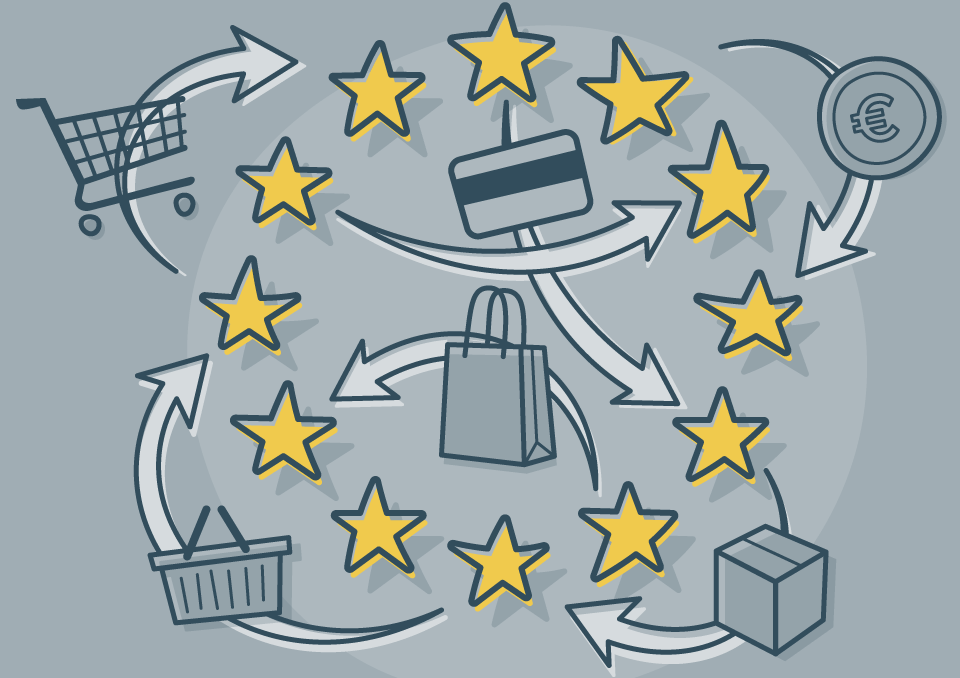On 15th of March the European Consumer Day is celebrated, so it is good occasion to remember the consumer rights requirements. Especially it is important for every consumer to know the rights buying not in shops, i.e. when buying at a distance selling (online, by phone, post) and direct selling or off-premises sales (for example at home, workplace or at the excursion or demonstration of products organized by the trader).
5 main things everyone should know and remember:
1. 14 Days to refuse the purchase or 12 months if not informed about that
Probably the most important right is that in case of distance sales and sales away from business premises consumers are able to cancel sales contract and receive a refund during 14 calendar days from the delivery of goods. Where multiple goods are ordered by the consumer in one order but are delivered separately, the withdrawal period expire after 14 days from the day on which the consumer acquires physical possession of the last good. Traders have to provide to consumers a model withdrawal form which consumer is able (but are not obliged to) use if they change their mind and wish to withdraw from a contract concluded at a distance or at the doorstep. In case of failure properly to inform consumers of their right to withdraw, the maximum withdrawal or cancellation period is automatically extending to 12 months from the end of the initial 14 day period. Also it is worth to remember that Law of Obligation Act foreseen the list of contracts to which the right of withdrawal does not apply, for example for contracts for the supply of goods made to the consumer’s specifications or clearly personalised, for the supply of goods which are liable to deteriorate or expire rapidly or for the supply of sealed goods which are not suitable for return due to health protection or hygiene reasons and were unsealed after delivery.
2. Refund rights
Traders have to refund consumers for the product within 14 days after the withdrawal from the contract, including the costs of delivery. Trader is able not to reimburse the additional delivery costs if consumer chosen other than standard delivery method, for example much faster, but also more expensive delivery option (like express delivery). At the same time, traders are entitled to withhold the refund until the goods have been received back, or until consumer has supplied evidence of having sent back the goods.
3. Return of products and costs of return
If consumer decides to return the goods, in the law it is foreseen a duty for consumer to do it no later than during 14 calendar days, unless in the contract it is foreseen otherwise, for example, that the trader takes the goods by himself. Also, if trader clearly informs about that, consumer will have to bear the cost of returning goods after they change their mind and withdraw from distance or off-premises. If traders doesn’t inform about that, so they must bear the costs of return. Also traders have to provide at least an estimate of the maximum costs of returning bulky goods bought by internet or mail order, such as a sofa or refrigerator, before the purchase, that consumers could make an informed choice before deciding from whom to buy. Also, in case of the contracts concluded away from business premises, if the goods have been delivered to the consumer’s home at the time of the conclusion of contract and these goods cannot normally be returned by post, the traders will have to take the goods at their own expenses.
4. Price transparency, ban on hidden charges
Traders have to disclose the total cost of the product or service, as well as any extra fees. Online shoppers don’t have to pay charges or other costs if they were not properly informed before they place an order. Also when shopping online – for instance buying a plane ticket – you may be offered additional options during the purchase process, such as travel insurance or car rental. So it is important to know that already in all EU member states it is not allowed these additional services to offer through so-called ‘pre-ticked’ boxes, when consumers are forced to untick those boxes if they do not want these extra services.
Traders are not able to charge consumers more for paying by credit card (or other means of payment) than what it actually costs to the trader to offer such means of payment. Traders who operate telephone hotlines allowing the consumer to contact them in relation to the contract shall not charge more than the basic telephone rate for the telephone calls.
5. Delivery of goods and responsibility
Trader should deliver the goods not later than 30 days from the day of the conclusion of the contract, if it is not agreed otherwise. If the goods within this period are not delivered, the consumer should call upon the trader to make the delivery within a reasonable additional period of time and be entitled unilaterally to terminate the contract if the trader fails to deliver the goods even within that additional period of time. This rule is not applied where the delivery period is essential such as, for example, in the case of a wedding dress which should be delivered before the wedding. Trader is responsible for the loss or damage of the good during the delivery. Consumer becomes responsible for the good from the moment of receiving them.
It should be noted that in case of contracts concluded away from business premises (direct selling/off-premises contracts) in Estonia the requirements are applicable if the transaction exceeds 20 euros. However members of Estonian Direct Selling Association are offering for their consumers higher protection and are obliged to follow the Code of Conduct towards Consumers, which set higher consumer rights protection than it is set by a law.
I wish you a good shopping experience buying online or away from business premises and do not forget your rights!
Gintautas Zaleckas, General Secretary for the Baltic Direct Sellling Associations.

